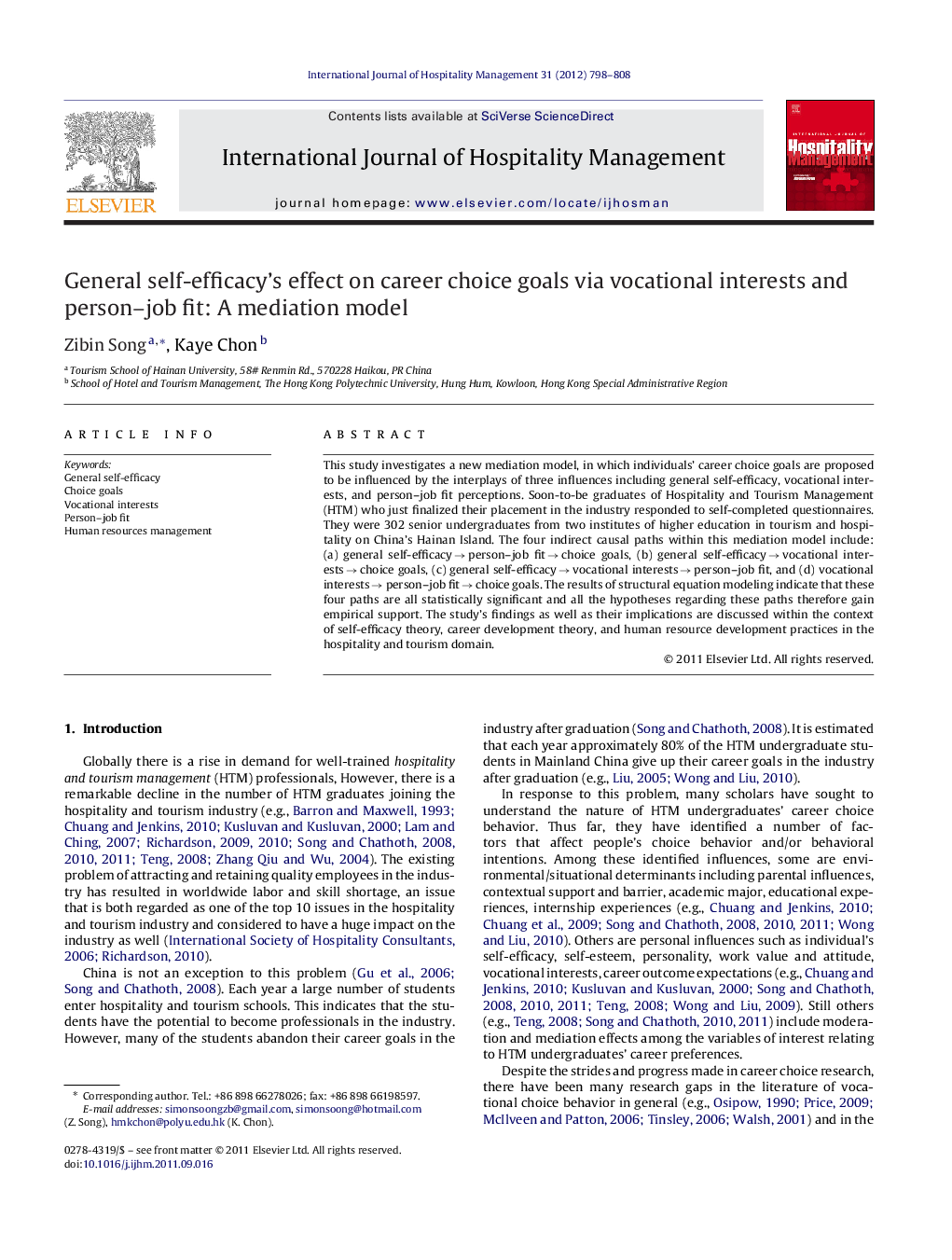| Article ID | Journal | Published Year | Pages | File Type |
|---|---|---|---|---|
| 1009919 | International Journal of Hospitality Management | 2012 | 11 Pages |
This study investigates a new mediation model, in which individuals’ career choice goals are proposed to be influenced by the interplays of three influences including general self-efficacy, vocational interests, and person–job fit perceptions. Soon-to-be graduates of Hospitality and Tourism Management (HTM) who just finalized their placement in the industry responded to self-completed questionnaires. They were 302 senior undergraduates from two institutes of higher education in tourism and hospitality on China's Hainan Island. The four indirect causal paths within this mediation model include: (a) general self-efficacy → person–job fit → choice goals, (b) general self-efficacy → vocational interests → choice goals, (c) general self-efficacy → vocational interests → person–job fit, and (d) vocational interests → person–job fit → choice goals. The results of structural equation modeling indicate that these four paths are all statistically significant and all the hypotheses regarding these paths therefore gain empirical support. The study's findings as well as their implications are discussed within the context of self-efficacy theory, career development theory, and human resource development practices in the hospitality and tourism domain.
► General self-efficacy influences career choice goals indirectly through vocational interests and person–job fit. ► Vocational interests partially mediate the relation of General self-efficacy → person–job fit. ► Person–job fit partially mediates the relation of vocational interests → choice goals.
